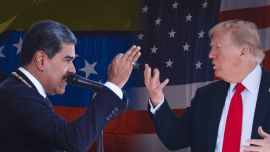The income tax cuts finally approved by the Senate last Thursday carry every appearance of being the right thing for the wrong reasons. Their passages in both houses of Congress would hardly have been so unanimous (241 of the 257 deputies and 66 of the 72 senators with nobody voting against) if tax relief were not a long overdue need. Yet the move smacks of electoral opportunism, literally putting money into the pockets of millions of voters instead of the tax breaks needed to revive an investment which last year fell below the levels of simple maintenance. At one point the bill was poised to tilt the balance yet further against potential investors by jacking up the corporate tax rate to 35 percent for all companies netting above 2.6 million pesos in order to mitigate the fiscal cost of 41.25 billion pesos resulting from the new 150,000-peso income tax floor. Second thoughts led to the 35 percent being scaled back for all companies netting less than 20 million pesos but doubts remain as to whether there is any real improvement of the incentives to create new jobs paying salaries of 150,000 pesos while the deficit continues to shoot up with every new electioneering move.
Meanwhile at the other end of the social scale there are some 19 million people below the poverty line as against the 1.3 million main beneficiaries of the new income tax floor, a fact forcefully underlined by Thursday’s picket protests at all odds with the surging second wave of the coronavirus pandemic with the daily caseload now topping 20,000 and this week’s new restrictions announced by an infected (and twice vaccinated) president.
Coronavirus is leading to a new collision course with organised labour in the form of the meagre single-digit percentages granted to healthcare schemes facing spiralling pandemic costs threatening the union-run obras sociales with a terminal crisis. If there is a hidden agenda of using the pandemic to rationalise a hopelessly fragmented health system into some criollo version of Britain’s National Health Service by choking away the alternatives, could this be another case of doing the right thing for the wrong reasons (or perhaps the wrong thing for the right reasons)? Yet if so, this would be playing with fire because weeding out the smaller providers (a dozen or so private clinics have already closed their doors in Greater Buenos Aires alone) could accelerate the collapse of the hospital system in the face of the second wave, thus making the famous dictum of Lord Keynes – “In the long run we are all dead” – literally truer than ever.
Yet in a rather shorter term the coronavirus pandemic which so totally defined last year and which so conditions every political and economic decision now could soon be over – hopelessly delayed as the vaccines are, their erratic but continuing trickle might well lead to a completely different picture by midyear, as we are starting to see in the United States. Policy-making is thus caught in a time warp because the public health emergency must outweigh all other considerations now and yet the accumulated state powers and the economic sacrifices could be serious obstacles to recovery at a later stage in a not very distant future. An impossible dream perhaps but public debate and planning also need to proceed as if there were no midterm elections only likely to change a few seats nor the Covid-19 pandemic.


















Comments